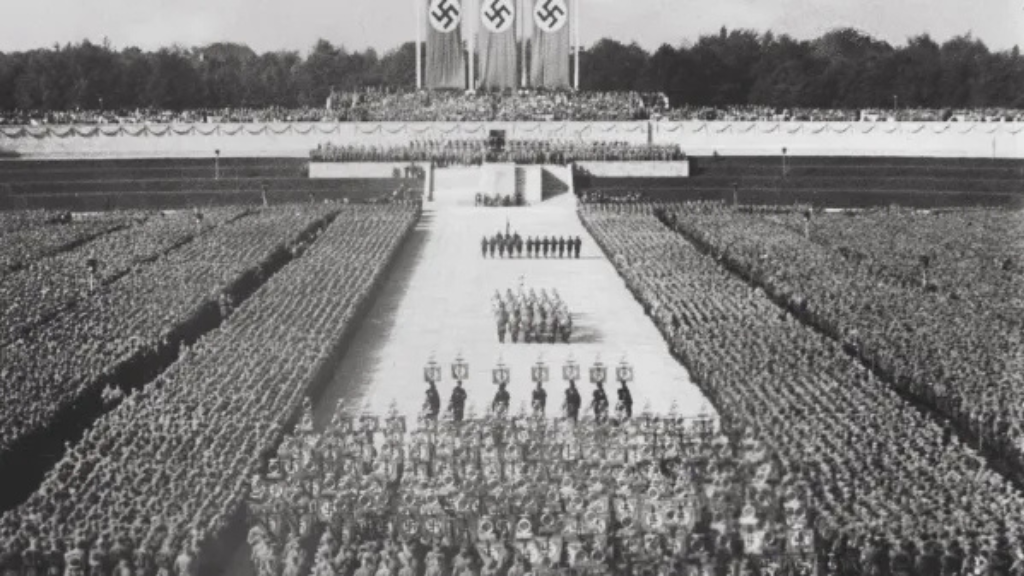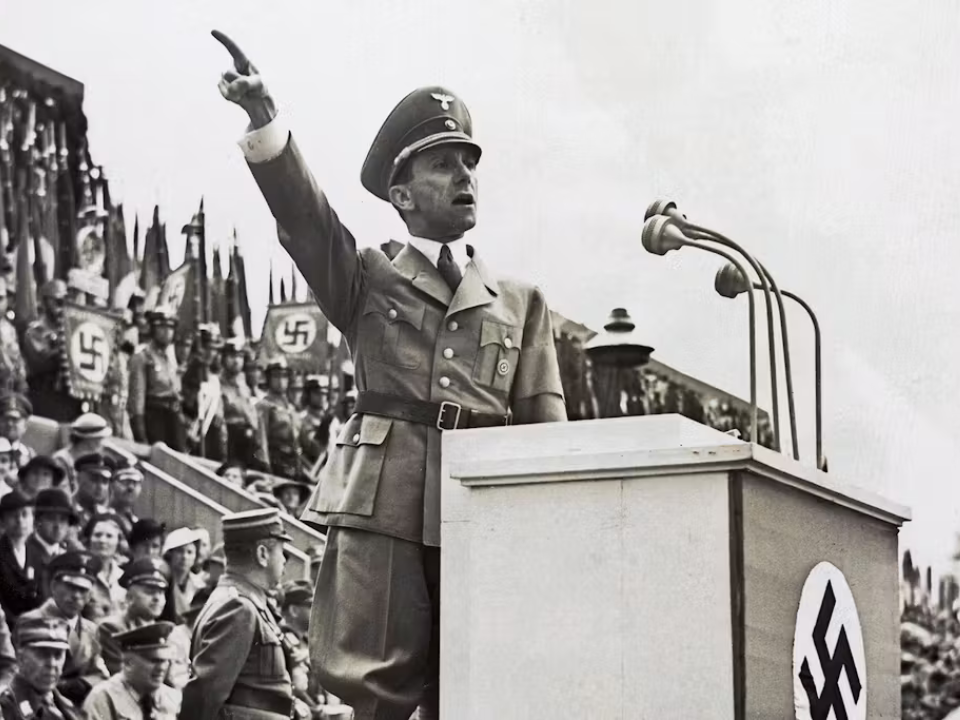Propaganda and Ideological Control
For Reference: Nazi Germany | Part 3
In Nazi Germany, propaganda was a tool of immense power, woven into every facet of life. Under Joseph Goebbels, the Minister of Propaganda, the Nazi regime used this influence to shape beliefs, instill fear, and create a cult of personality around Adolf Hitler. This article explores the deeply disturbing methods that the Nazis employed to manipulate the German public’s thoughts and attitudes. From mass media to youth indoctrination, Nazi propaganda reached every age, class, and region, fueling the regime’s dark ambitions.
The Structure of Nazi Propaganda
The Nazi propaganda machine was meticulously organized, with Joseph Goebbels at the helm. The Ministry of Public Enlightenment and Propaganda, established in 1933, controlled all forms of information in Germany. Goebbels was a master manipulator, creating a centralized system that monitored, censored, and altered any content the regime considered unsuitable. Newspapers, radio broadcasts, films, and literature were repurposed to convey a single narrative: the glorification of Hitler and the vilification of his enemies. Goebbels understood the power of repetition and spectacle, using them to reinforce messages that would resonate with the public long after they were initially conveyed.
Media and Public Manipulation
Media became one of the regime’s most potent weapons. Newspapers like Der Stürmer published grotesque caricatures and inflammatory articles against Jews, communists, and other targeted groups. Radio broadcasts brought Hitler’s speeches into homes across the nation, reaching those who might otherwise be untouched by party rallies. Films played a particularly unique role. One of the most famous examples is Triumph of the Will, directed by Leni Riefenstahl. This propaganda film was a masterclass in psychological manipulation, celebrating Hitler as a hero and portraying the Nazi party as the embodiment of German strength and unity. These media reinforced the regime’s vision, molding the population’s perceptions and aligning them with Nazi ideals.

Image: Nsdap/Kobal/Shutterstock
The Role of Education and Youth Indoctrination
The Nazis understood that to sustain their ideology, they had to mold young minds. Schools across Germany were transformed into centers for indoctrination. Traditional subjects were repurposed to fit Nazi ideology; history was rewritten to exalt German superiority, while biology classes promoted racial purity. Beyond academics, extracurricular activities were a major avenue for Nazi indoctrination. Organizations like the Hitler Youth for boys and the League of German Girls played a significant role in training German children to accept Nazi values unquestioningly. These groups instilled a strong sense of loyalty to Hitler and taught youth to view obedience as a virtue, preparing them to support the regime’s ambitions, even on the battlefield.
Antisemitic Propaganda and Its Devastating Effects
At the heart of Nazi propaganda was a relentless campaign of antisemitism. Jews were portrayed as the enemies of Germany, depicted as vermin or pests in propaganda posters and cartoons. This narrative was pushed in every possible medium, embedding hatred and fear within the German psyche. Films like The Eternal Jew dehumanized Jewish people, painting them as the source of Germany’s misfortunes. The relentless barrage of antisemitic messaging normalized discriminatory laws, segregations, and, eventually, the horrors of the Holocaust. The Nazis leveraged public fear and ignorance, turning propaganda into a weapon that facilitated one of history’s darkest atrocities.
Legacy of Nazi Propaganda
The legacy of Nazi propaganda is a stark reminder of the dangers of unchecked media control and ideological manipulation. The Nazi regime’s propaganda machine did not only impact those who lived under it; it left lasting scars on German society and remains a powerful example of the human cost of totalitarianism. Today, the study of Nazi propaganda serves as a critical lesson in the importance of media literacy, the need to question dominant narratives, and the responsibility to guard against manipulation in all its forms.
Nazi Germany’s use of propaganda exemplifies the terrifying potential of psychological manipulation. Through coordinated messaging, emotional appeals, and repetitive imagery, the Nazis succeeded in shaping a society that would support their horrific actions. As we reflect on this period, the importance of critical thinking, historical awareness, and media responsibility becomes ever more clear. By understanding and remembering the past, we are better equipped to prevent the resurgence of such dangerous ideologies in our present and future.
Details of the Featured Image
Joseph Goebbels delivering a speech, epitomizing the Nazi regime’s mastery in propaganda and ideological control.
Image © Ullstein/All over Press
Author
Ziara Walter Akari
© 2024 www.apotheosislife.com
